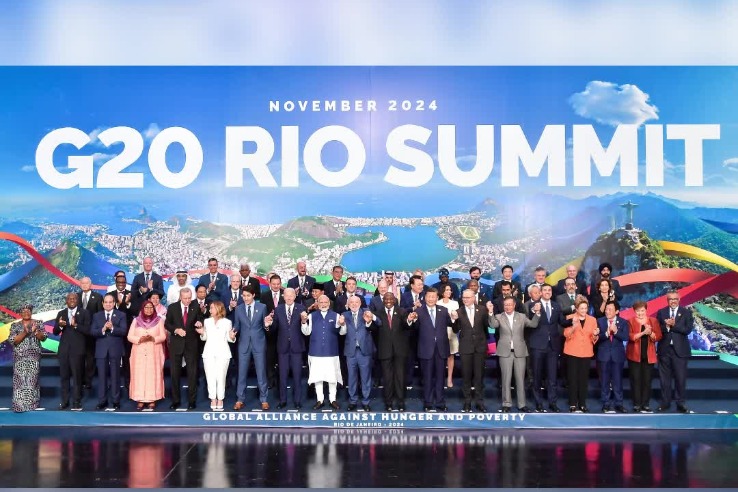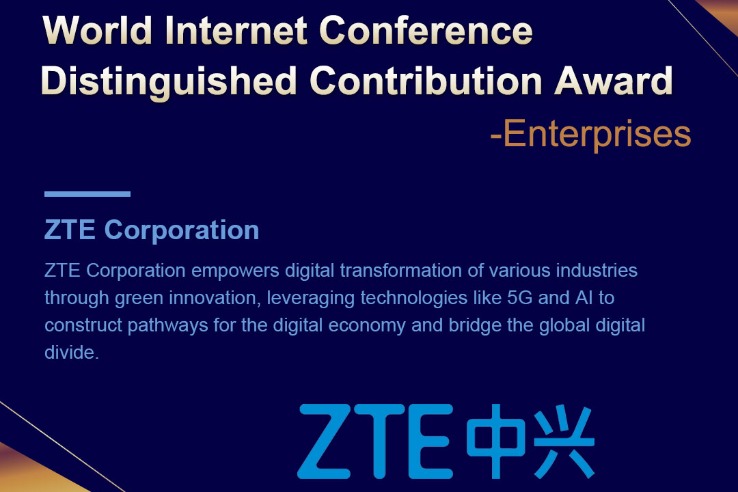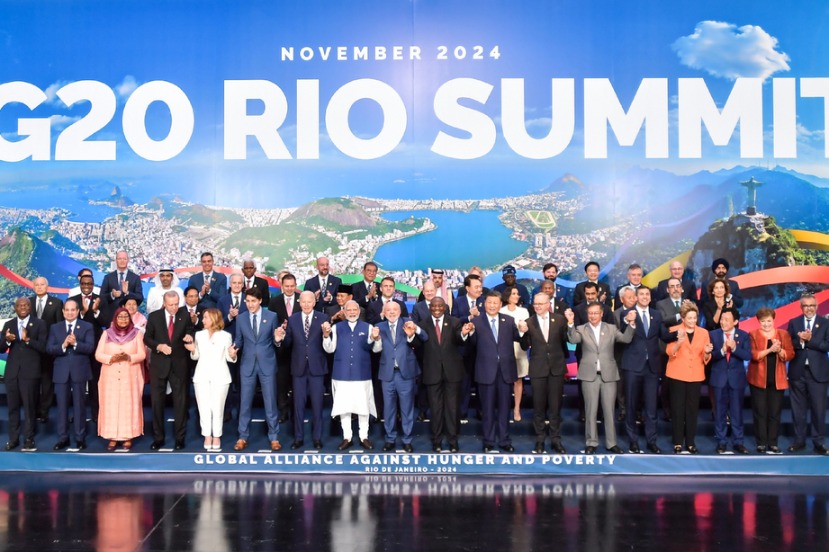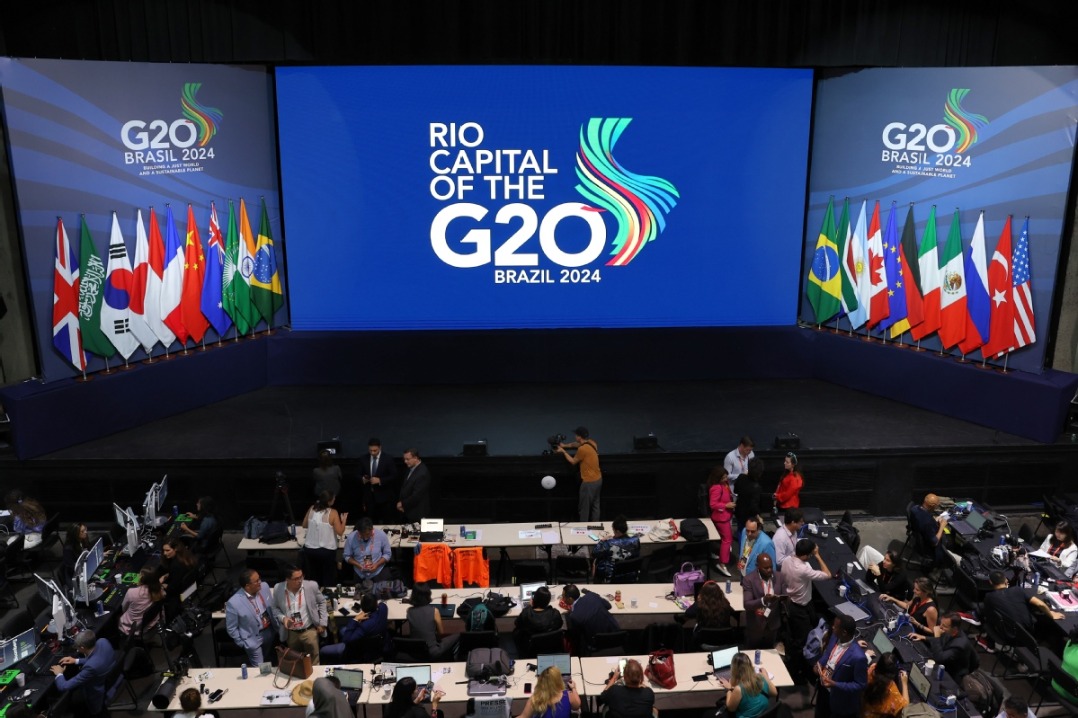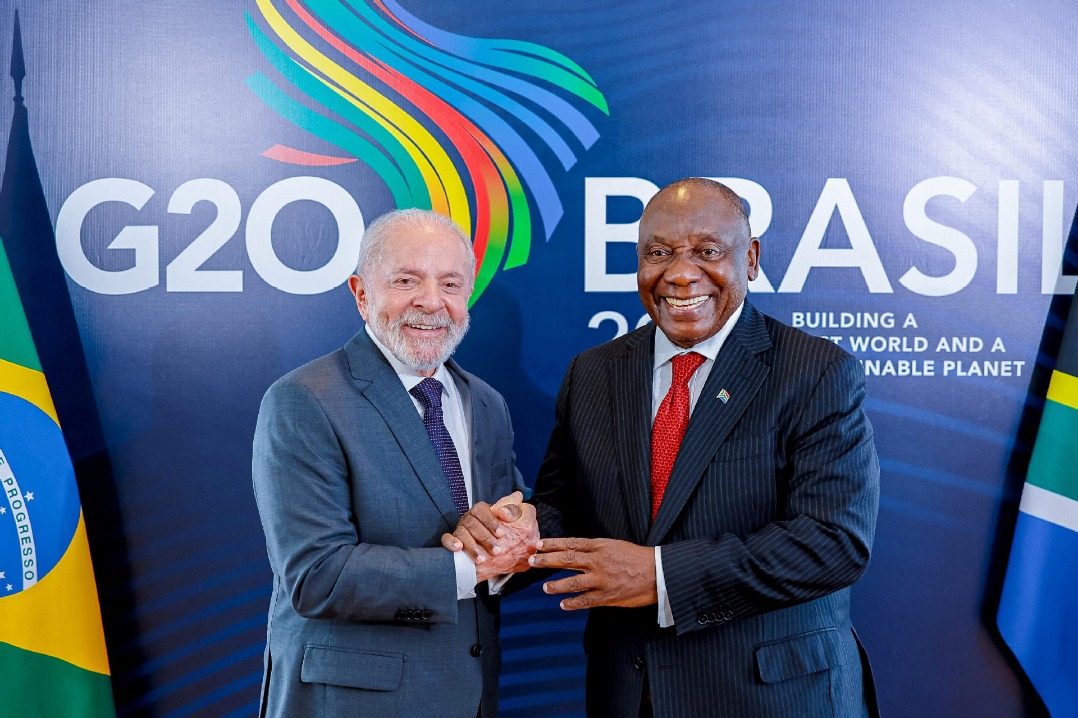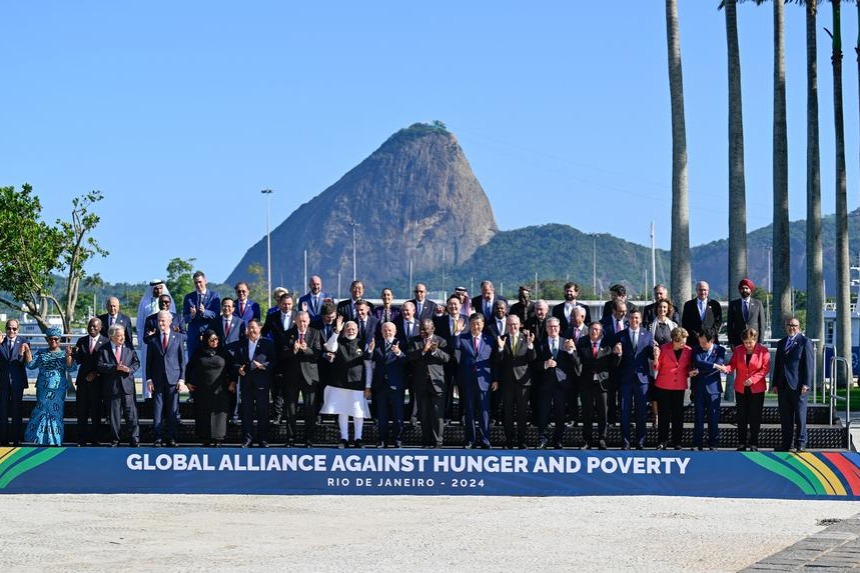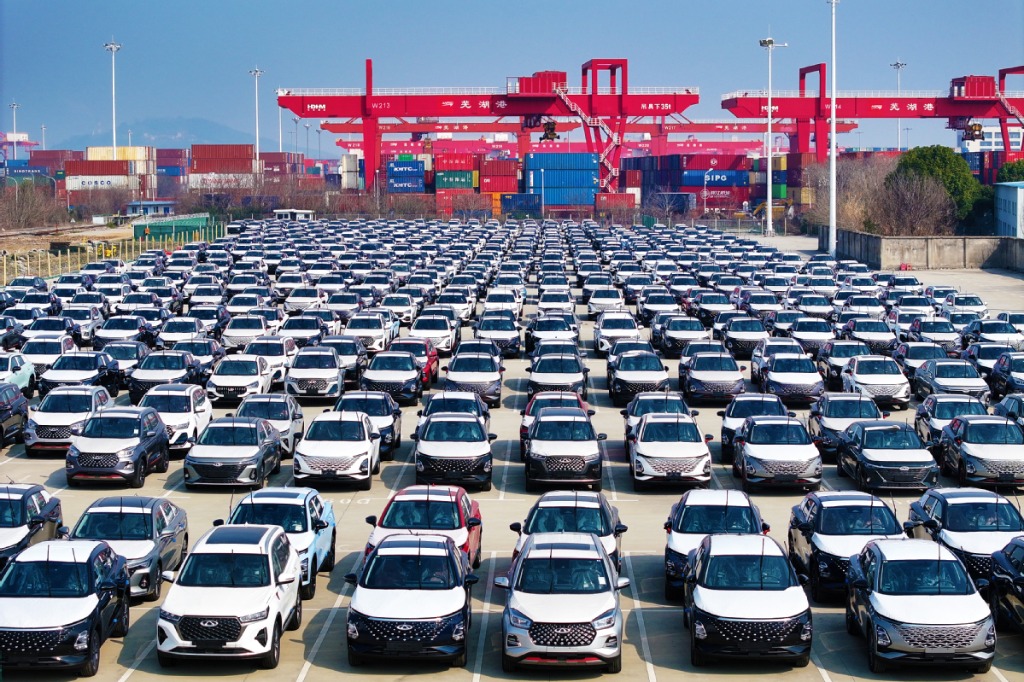Claim it in Rio


The G20 summit presents the Global South, including China, with a chance to play a historical role in shaping the global narrative around equitable sustainable development and collective security
The G20 summit in Brazil held significant potential for advancing regional peace and addressing pressing global challenges, particularly for the Global South. While the G20 has historically refrained from mediating geopolitical conflicts directly, the summit in Rio de Janeiro could foster dialogue on pressing regional issues.
The summit agenda emphasized sustainable development, social inclusion and global governance reform. These themes were pertinent given Brazil's focus on reducing inequality and leveraging green industrialization to drive growth and climate action. The ongoing crisis in Ukraine remains a major point of contention, with indirect implications for energy security and global trade. Brazil's role as a neutral mediator, coupled with its emphasis on multilateral cooperation, may create opportunities and open venues for a political dialogue on highly contentious issues, particularly regarding conflicts in Africa and the major violent escalations in Western Asia. What is more, the inclusion of the African Union as a permanent G20 member enhances the prospects for consensus on peace initiatives in regions heavily affected by food insecurity and debt crises.
The summit provided a platform for the Global South, including China, to contribute to shaping a unified agenda on trade, finance and development. China's growing influence in global trade and investment, allows it to play a more important role in the international order, alongside traditional economic powers such as the United States and the major Western European nations.
Meanwhile, Brazil's focus on reforming the Bretton Woods institutions, namely the International Monetary Fund and the World Bank, aligns with China's hopes for increasing representation for emerging economies. This could lead to greater South-South cooperation on issues such as sustainable development, energy transition, and debt relief. In fact, China's role will be particularly significant as it navigates tensions with Western economies over trade policies and industrial competition. Simultaneously, initiatives such as Brazil's push for a wealth tax on the ultra-rich and the mobilization of resources for climate action could reshape the economic landscape for Global South nations, offering new avenues for sustainable growth.
The 2024 G20 summit was thus poised to significantly impact the security and development of the Global South countries, addressing their evolving roles in a shifting global order. The security dimensions of this edition of the G20 summit were multifold and of paramount importance. In terms of geopolitical stability, the summit provided a platform to discuss global conflicts, including the Ukraine crisis and tensions in the "Indo-Pacific" region. While the G20 traditionally avoids direct conflict resolution, Brazil's emphasis on multilateral dialogue opened pathways for de-escalation, especially concerning supply chains and food security issues arising from these conflicts. For China, a major player in the Global South, the summit allowed it to reaffirm its position against protectionism and unilateral sanctions, bolstering its narrative of promoting a multipolar world. As it pertains to regional peace initiatives, the inclusion of the AU as a permanent G20 member enhances the group's ability to address regional conflicts in Africa. This is vital for the Global South, where instability, protracted conflicts, and institutional fragility more often than not undermine development efforts. What is more, China's Belt and Road Initiative aligns with these peaceoriented goals, as regional stability is crucial for its infrastructure and trade projects in developing nations.
In terms of developmental impacts, the issue of economic representation and equity will certainly surface again. Brazil's repeated calls for reforming global financial governance structure aligns with China's push for a greater voice for emerging economies. If successful, this could result in increased financial flows and fairer lending terms for the Global South, enabling economic growth and infrastructure development. Sustainability and green development are cornerstones of Brazil's G20 presidency. The focus on green industrialization and clean energy could benefit both China, as a leader in renewable technology, and other Global South nations seeking affordable pathways to energy transition. Last but not least, the haunting specter of debt relief remains of salient importance. Therefore, the G20 was expected to address the debt crises plaguing many Global South nations, including those in Africa and more particularly the least developed nations. Efforts to expand the Common Framework for Debt Treatments could alleviate fiscal pressures, promoting growth and social programs in several struggling economies of the Global South.
This summit also offered strategic opportunities for China, which, with its dominant share in global trade, can play an important role in trade leadership. China can leverage the G20 to challenge current trade policies and advocate for more open markets. This also supports the broader interests of the Global South, whose economies depend on equitable trade relations. This applies also to South-South cooperation. The summit offered China an opportunity to strengthen ties with fellow Global South nations, potentially through BRICS and other coalitions. Such alliances can amplify calls for systemic reforms and foster shared development projects. Yet, despite these prospects, challenges remain.
Nevertheless, tensions between major powers, such as the US and China, and the slow pace of global governance reform could hinder substantive agreements. Tensions with Western nations over trade practices and geopolitical conflicts, particularly in the "Indo-Pacific" region and Ukraine, may limit consensus-building efforts. Achieving tangible results in governance reform and debt relief requires overcoming entrenched resistance from developed countries. However, Brazil's innovative approaches, including its "G20 Social" initiative to involve civil society in policy discussions, represent a step toward bridging divides and fostering a more inclusive decision-making processes.
In sum, the 2024 G20 summit offered a unique opportunity to address key issues affecting global security and economic stability. For the Global South, including China, it could signal a shift toward greater influence in shaping the global agenda, though achieving consensus will require navigating complex geopolitical and economic dynamics. For China and the Global South, the summit was an important platform in which they could play a historical role in shaping the global narrative around equitable sustainable development and collective security. While challenges persist, the focus on sustainability, debt relief, and multilateralism offers a chance to address systemic inequities and foster long-term peace, growth and stability. Faced with a new opportunity to address key issues haunting our world in the midst of uncertainty and tumults, it remains to be seen if the global actors will seize it for the benefit of humanity as a whole.
The author, who holds a PhD in political sociology, is a senior United Nations official and a visiting scholar at the University of New England. The author contributed this article to China Watch, a think tank powered by China Daily. The views are those of the author, and do not necessarily reflect those of the United Nations nor the China Daily.
Contact the editor at [email protected].
















